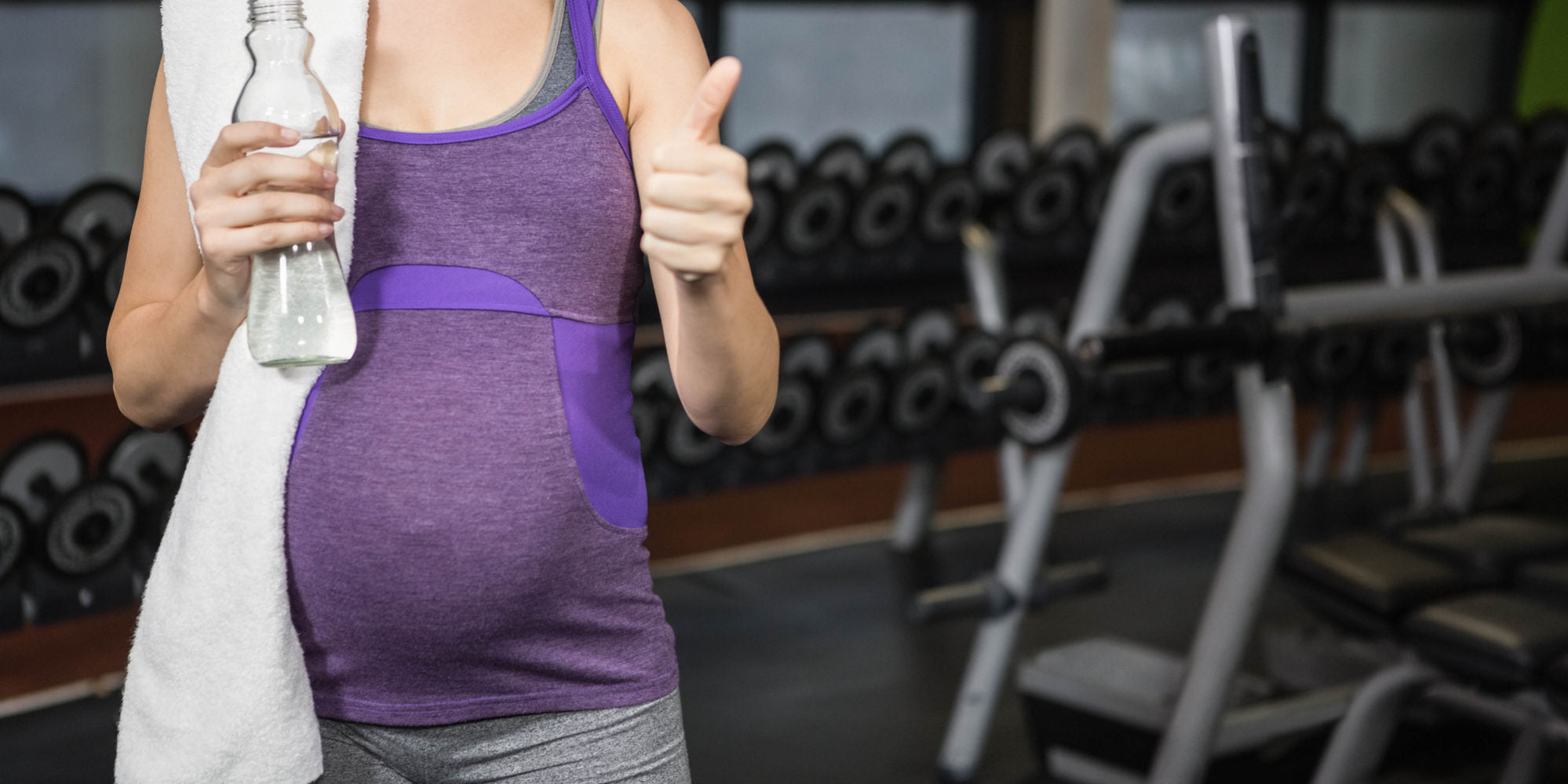Pregnancy is a time of changes—physical, mental, and lifestyle changes. You are probably one of the many women who are feeling some low back and pelvic pain. You may also be experiencing weight gain, cramping muscles, swelling in the feet and hands, and mood swings. Though one of the best ways to deal with these changes is to get exercise, most pregnant women oftentimes overdue the physical activity and wind up with some musculoskeletal injury.
So you might be thinking, “How am I supposed to stay fit during pregnancy if I’m going to get hurt?”
Fortunately, there are plenty of ways to get exercise while you are pregnant.
Please remember that you should always get clearance from your doctor before starting or continuing on with an exercise program when you are pregnant. Also, some exercises are contraindicated when pregnancy, especially during the second and third trimester. Do not exercise if you have complications such as pregnancy-induced hypertension, premature labor, ruptured membranes, incompetent cervix, poor fetal growth, placental disease, a history of miscarriage, or persistent bleeding after 12 weeks of pregnancy.
If you don’t have any pregnancy complications and have been cleared by a doctor for physical activity, then you can safely proceed. Next, you need to know how to keep yourself from getting injured!
Benefits of Exercise During Pregnancy
Regular physical activity can benefit you and your growing baby in many ways, such as:
- Less back pain
- Less constipation
- Decreases the risk of gestational diabetes, cesarean delivery (C-section), and preeclampsia
- Decreases morning sickness
- Promotes better posture and appearance
- Decreases potential labor time
- Better sleep
- Promotes healthier weight gain during the three trimesters
- Improves overall fitness level and strengthens the heart and lungs
- Can help with losing baby weight after delivery
How Many exercises Should I Do?
According to authorities like the American College of Obstetricians and Gynecologists (ACOG), pregnant women should aim to get around 150 minutes of moderate aerobic activity per week. An aerobic activity is any movement where the large muscles of the body, like the hamstrings and arms, are moving rhythmically and your heart rate is slightly elevated. This means that even walking can be a moderate-intensity aerobic activity if you are feeling slightly warm.
Other moderate-intensity activities include gardening, raking, yoga, dance, and calisthenics. You do not have to aim for 150 minutes all at one time. You can divide those minutes into short 30-minute workouts over 5 days or even break those 30-minutes into 3 short sessions, 10 minutes each. It depends on you and your schedule.
Those who are beginning exercise while pregnant should focus on shorter periods of physical activity, about 5-10 minutes per day. Add 5 minutes every week, until you are active for 30 minutes per day. For women who were active prior to pregnancy, you can continue with your program if it is approved by the OB/GYN. You will have to make modifications to your routine. Similarly, if you start losing weight, you might need to increase your calories.
Safe Exercises During Pregnancy
Here are exercises that are considered safe for pregnant women:
Cardio
- Walking – the best weight-bearing exercise for pregnant women and beginners
- Swimming – water supports your body weight, so you can avoid straining your muscles
- Aerobics
- Stationary bicycle – a growing belly shifts your weight, so regular bikes can become dangerous. Stationary bicycles are the safer choice and offer the same cardiovascular benefits.
- Dancing
- Running – safe during the first trimester
Flexibility
- Yoga – pre-natal yoga will introduce the ideal modifications to help you strengthen and stretch your body. If you take a regular class, avoid any poses that have you laying on your back or stomach for long periods of time, especially after the first trimester.
- Pilates – like yoga, pre-natal Pilates classes have exercises that accommodate the changing body.
- General stretching
Strength
- Weight training – take necessary precautions, use good technique and breathing, and work slow.
- Kegel exercises
Precautions To Take When Exercising During Pregnancy
Although you will notice that many activities are allowed for pregnant women, you should take some additional precautions to avoid injury. For example, most doctors will recommend that, after the first trimester, pregnant women avoid any exercises that place them on their backs.
You also want to avoid bouncing, leaping, sudden changes or shifts in direction and weight, and any other jarring movements. This means that you cannot go shaking everything during Zumba class, and you should avoid plyometric jumps.
Although aerobic exercises are generally accepted, you will need to consider your changing body as you get closer to the delivery date. Part of the reason is how the hormone relaxin works on your body, making joints far more supple than normal, and how your center of gravity shifts as the baby (and your belly) grow. The risk of falling increases the farther along you are, so avoid any exercises that have you stepping up, lunging side to side or back, kicking, or doing any vigorous movements.
Contraindicated Exercises
Now that you know what exercises are ideal during pregnancy, here are some exercises that should be avoided at all costs:
- Any contact sports that put you at risk of getting hit in the abdomen, such as boxing, soccer, basketball, football, ultimate frisbee, and certain martial arts and dance genres
- Skydiving and parasailing
- Any activities where you could fall, such as water skiing, off-roading cycling, skateboarding, snow skiing and snowboarding, horseback riding, ice skating
- Activities that may cause you to overheat or overstretch, like Bikram or “hot” yoga or hot Pilates
- Scuba diving
- Power lifting
- Exercises or activities done above 6,000 feet (unless you are already living at a high altitude)
Conclusion
Pregnancy causes the body to change, but you don’t have to be in constant pain because of it. You can find relief by staying active, as long as you are doing activities safely. With some precautions and the right selection of exercises, you can enjoy pregnancy as much as possible and look forward to the day you get to hold your little one.























































































Share:
10 Back & Shoulders Workout For Women
Why Is Prenatal Nutrition Important?